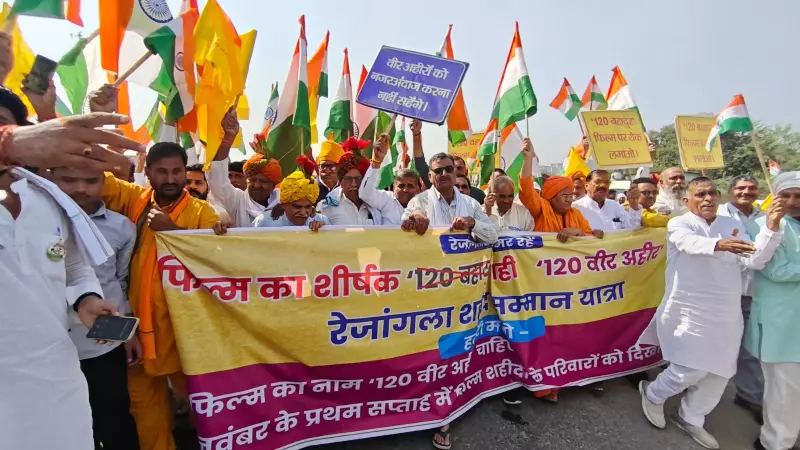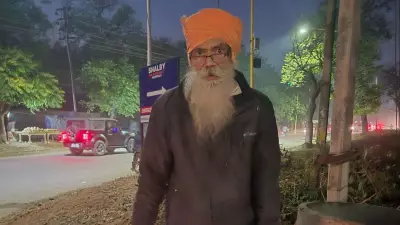
In a powerful display of community solidarity, thousands of members of the Ahir community embarked on a significant march from Gurgaon to the Delhi border, voicing their strong opposition to Farhan Akhtar's upcoming film '120 Bahadur'. The protestors are demanding an immediate name change for the movie, citing historical inaccuracies and misrepresentation of their community's valiant contributions to Indian military history.
Massive Peaceful Protest Disrupts Traffic
The protest march, which began in Gurgaon and proceeded toward the Delhi border, created substantial traffic disruptions along the route as thousands of participants joined the movement. Despite the massive turnout, the demonstration remained largely peaceful, with community leaders ensuring orderly conduct among protestors.
Historical Context Behind the Protest
At the heart of the controversy lies the community's assertion that the film misrepresents the heroic actions of the Ahir regiment during the 1962 Sino-Indian War. Community leaders argue that the title '120 Bahadur' inaccurately portrays their historical legacy and fails to properly acknowledge the supreme sacrifice made by Ahir soldiers in the Rezang La battle.
Community Leaders Voice Their Demands
Prominent Ahir community representatives have articulated clear demands to the filmmakers and relevant authorities. They insist that the film's title must be changed to properly reflect historical accuracy and respect the community's sentiments. Additionally, they're calling for proper consultation with community historians and military experts before proceeding with the project.
Political Support and Wider Implications
The movement has garnered support from various political figures and community organizations across Haryana and Delhi. The protest highlights the growing sensitivity around historical representation in Indian cinema and the importance of accurate portrayal of military history and community contributions to national defense.
As the situation develops, all eyes remain on the filmmakers' response and whether a compromise can be reached that respects both artistic expression and historical accuracy while acknowledging the community's legitimate concerns about their representation in popular media.





